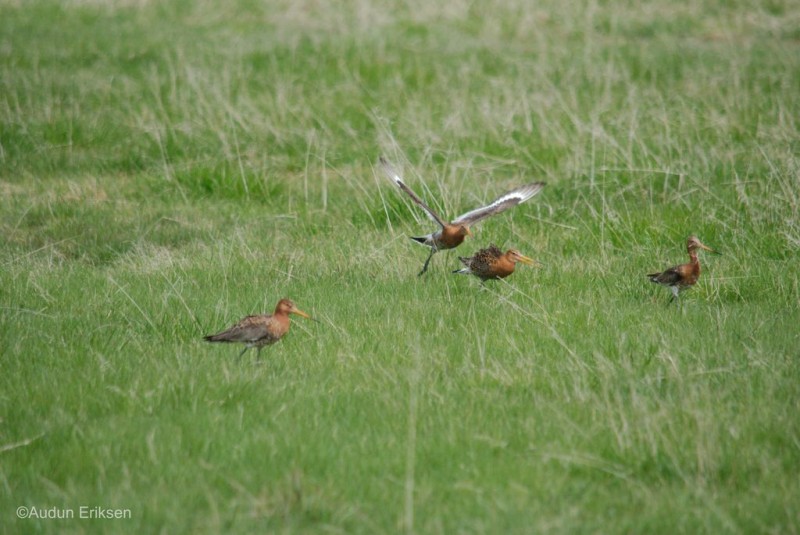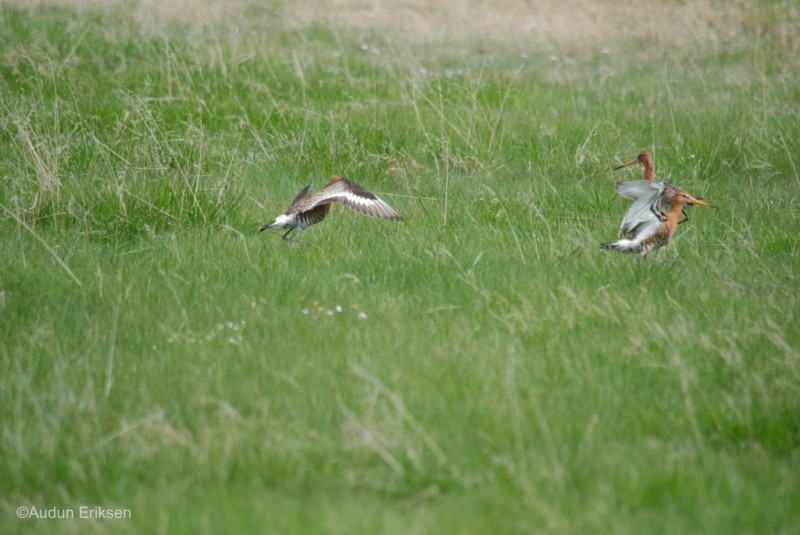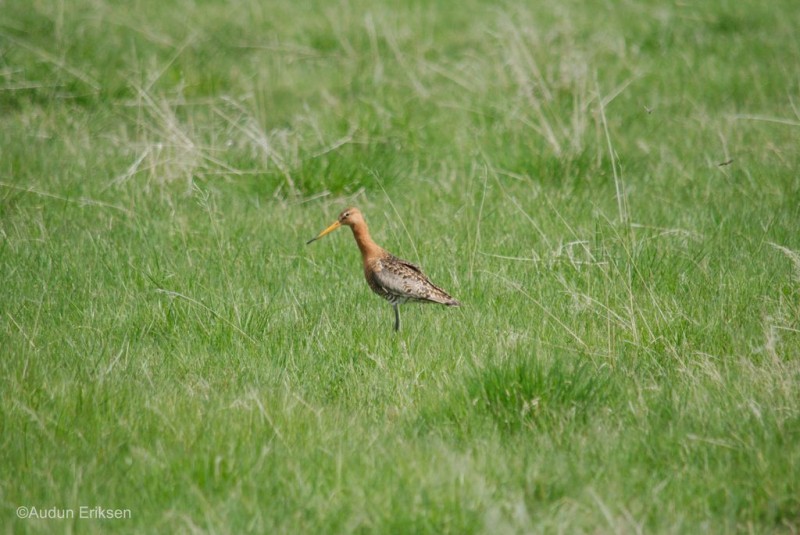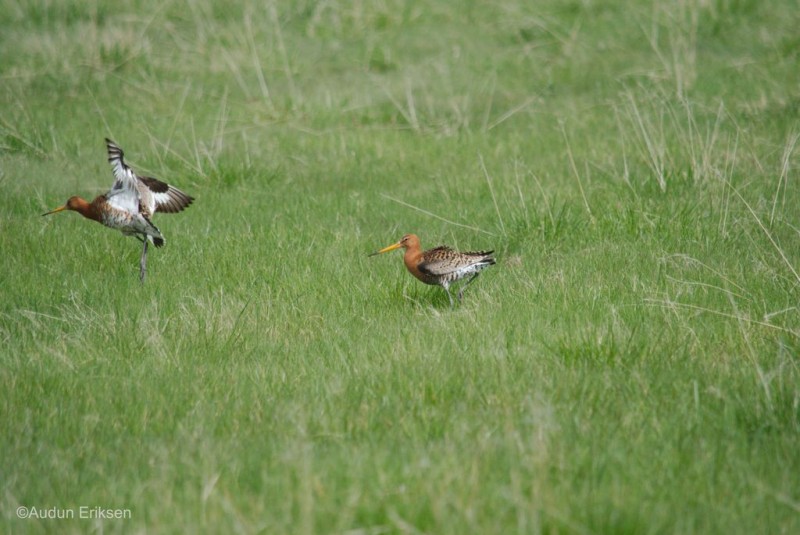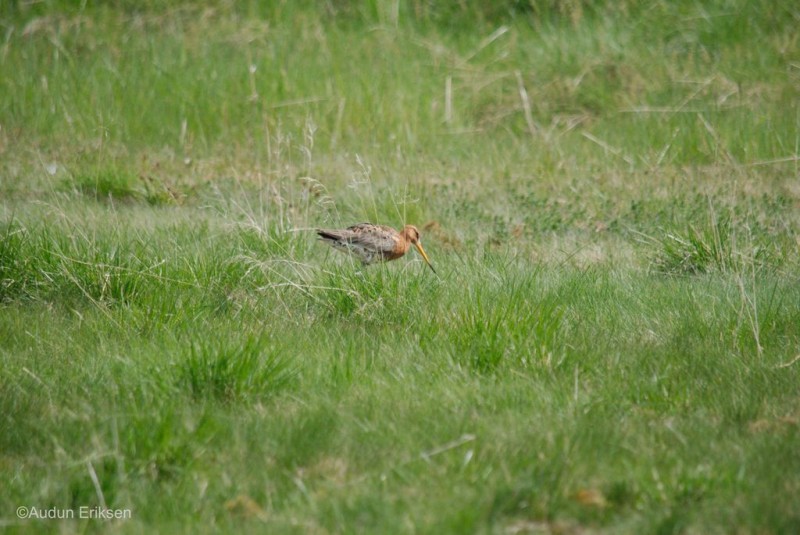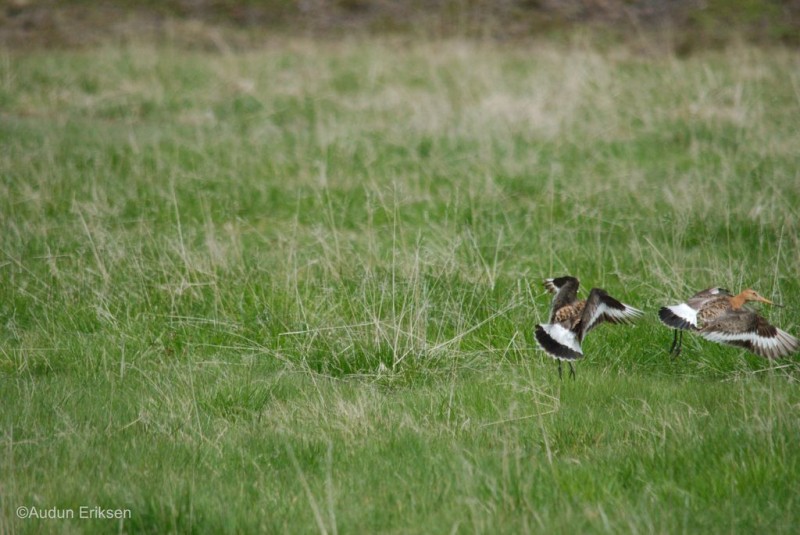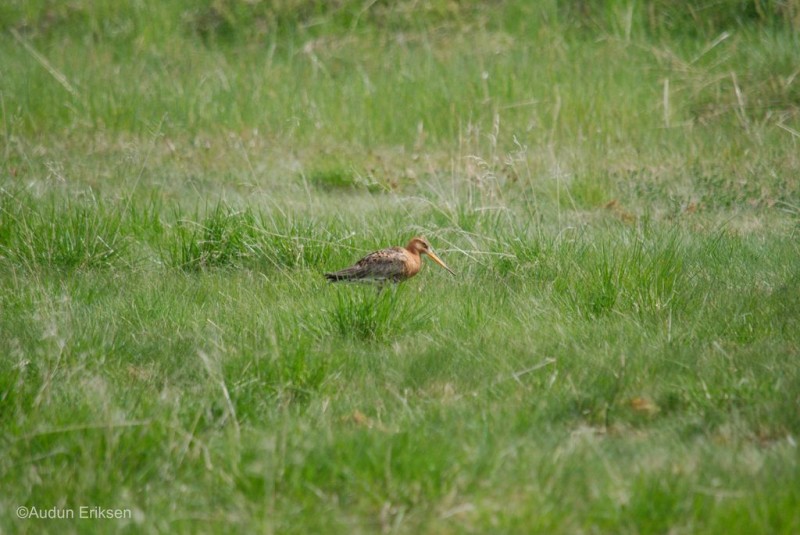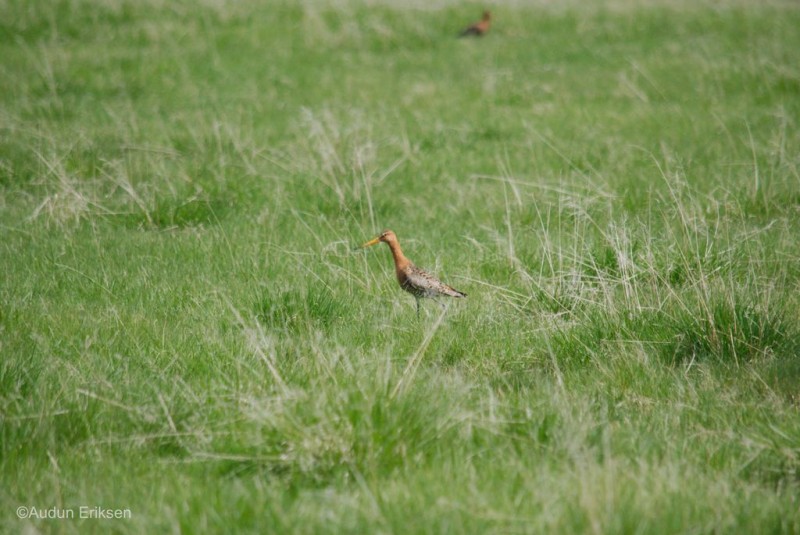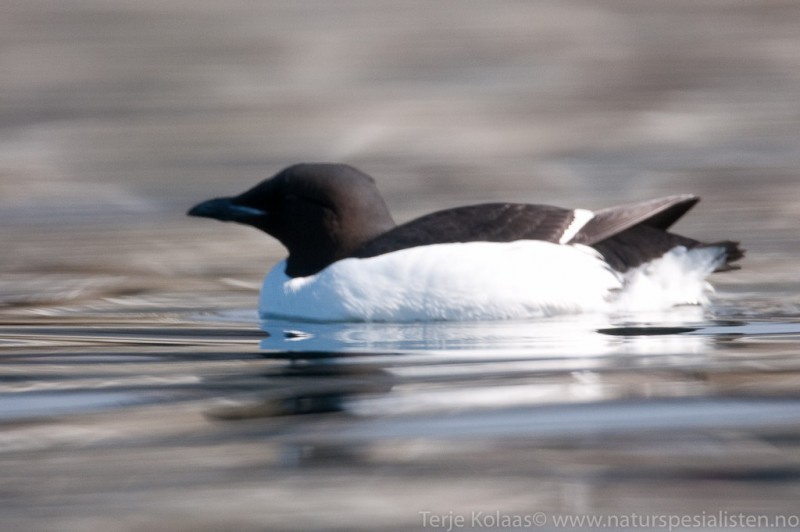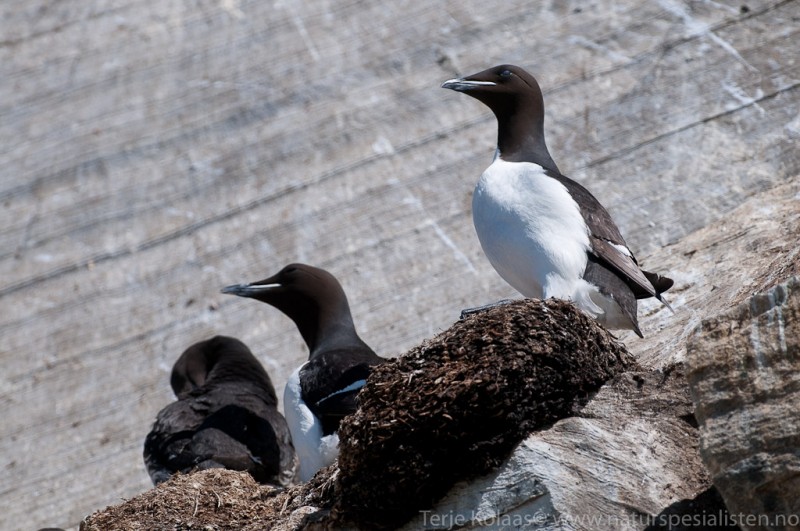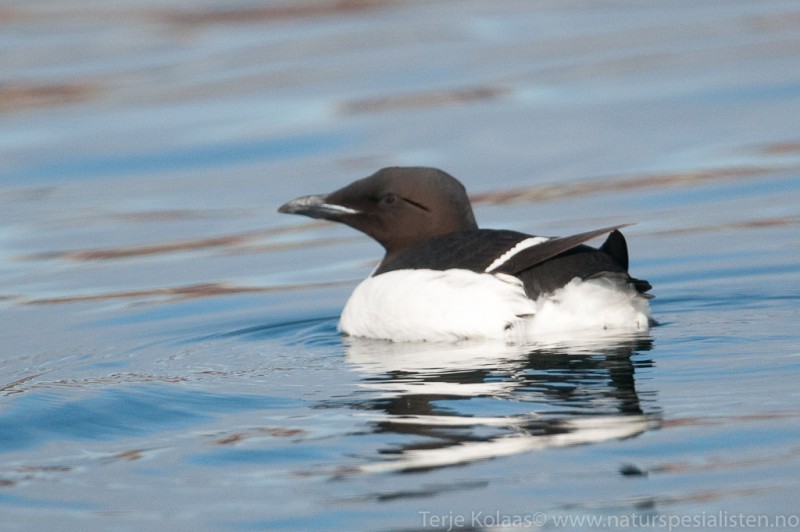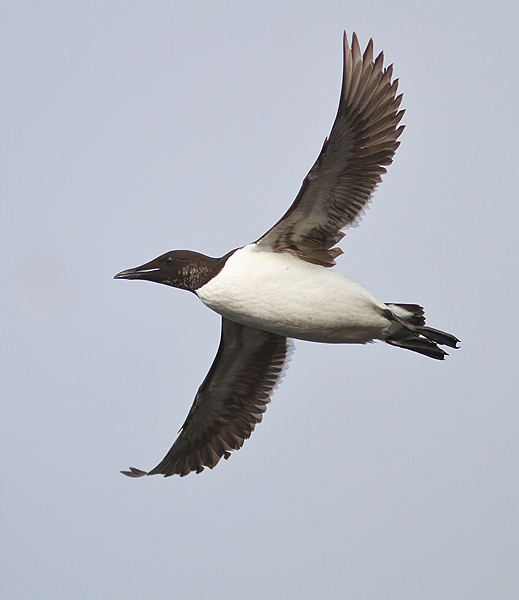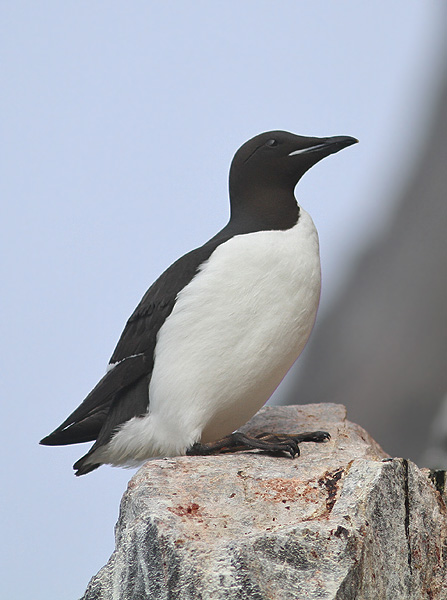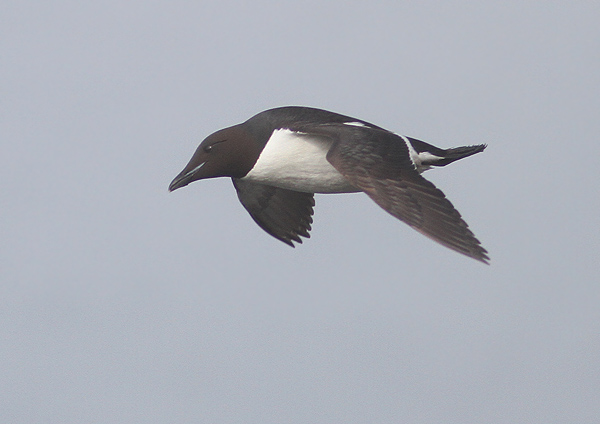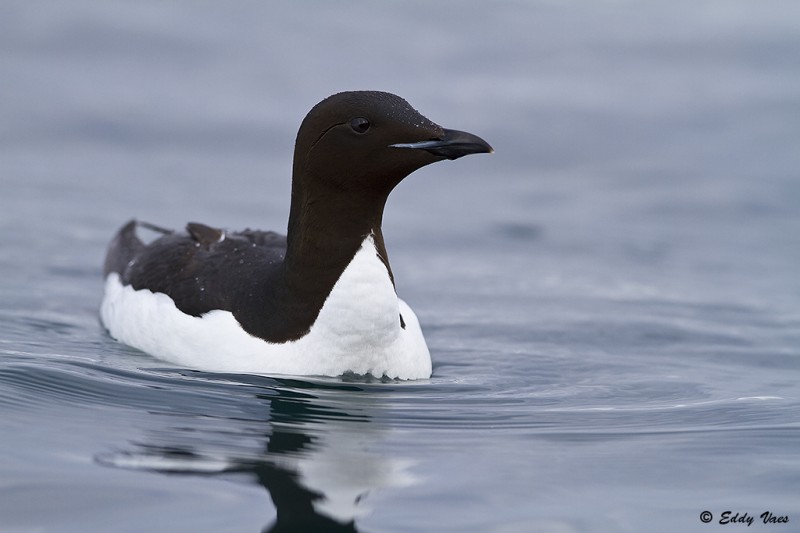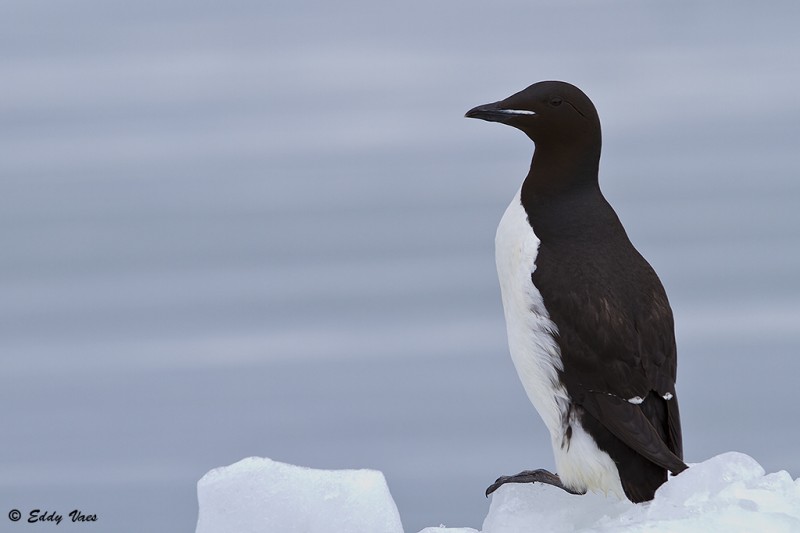Black-tailed Godwit (Limosa limosa)
Brünnich's Guillemot (Uria lomvia)
Most likely to be confused with Bar-tailed Godwit, but easily recognized in flight by its contrasting black and white wings and tail. More difficult to identify when not flying. Generally much leggier, more elegant and upright than Bar-tailed, and with straighter bill. Tibia especially long. Summer plumage with barred/spotted belly (never in Bar-tailed), and orange base of bill. Juveniles with scaled back, not arrow-shaped streaking. Adult winter with mainly uniformly grey plumage, and short supercilium not reaching behind the eye.
Sound:Quite vocal at breeding ground, but mostly silent elsewhere. Varied repertoire of mewing and sharp sounds, some resembling Bar-tailed, some almost lapwing-like. Most characteristic call is the display call; a sharp and mewing, rhythmic "kew-ku-weeewee". Generally the calls are evenly accentuated (as opposed to Bar-tailed).
Display call and contact calls:
Distribution:
Wikipedia: map (se also Xeno-canto below)
Ecology:Birdlife ecology
Links:
Observation.org Latest observations
Image search Flickr NB! May give other species
CCSounds:Recorded by Patrick Åberg,http://www.xeno-canto.org ,CC license
Hard to distinguish from Guillemot, especially at a distance. Bill heavier, shorter, less pointed and with lateral white stripe at base (not obvious at a distance). Flanks lacks Guillemot's streaking, and armpits are white. Upperparts blacker, without brownish tones. Tail shorter than razorbill, with protruding feet in flight. Only lower cheeks white in winter, with the area behind the eye being black (white in both Guillemot and Razorbill). Pointed (not rounded) white wedge protruding from front of chest to lower throat. Neck, head and bill, heavier than in Guillemot, but more slender than Razorbill. Bill often tilted downwards in flight.
Sound:Coarse and deep voice, like a cross between Guillemot and Razorbill. Coarser than Guillemot but with the same laughing ending, but slower.
Contact call:
Distribution:
Wikipedia: map (se also Xeno-canto below)
Ecology:Birdlife ecology
Links:
Observation.org Latest observations
Image search Flickr NB! May give other species
CCCC-sounds:,www.xeno-canto.org,Andrew Spencer,http://creativecommons.org/licenses/by-nc-sa/3.0/

 English
English Albanian
Albanian
 Armenian
Armenian
 Bulgarian
Bulgarian
 Catalan
Catalan
 Croatian
Croatian
 Czech
Czech
 Danish
Danish
 Dutch
Dutch
 Finnish
Finnish
 French
French
 Georgian
Georgian
 German
German
 Greek
Greek
 Hungarian
Hungarian
 Italian
Italian
 Latvian
Latvian
 Lithuanian
Lithuanian
 Macedonian
Macedonian
 Norwegian
Norwegian
 Polish
Polish
 Portuguese
Portuguese
 Romanian
Romanian
 Russian
Russian
 Sami : Lule sami
Sami : Lule sami
 Sami : North sami
Sami : North sami
 Sami : South sami
Sami : South sami
 Scientific names
Scientific names
 Serbian
Serbian
 Spanish
Spanish
 Swedish
Swedish
 Ukrainian
Ukrainian


